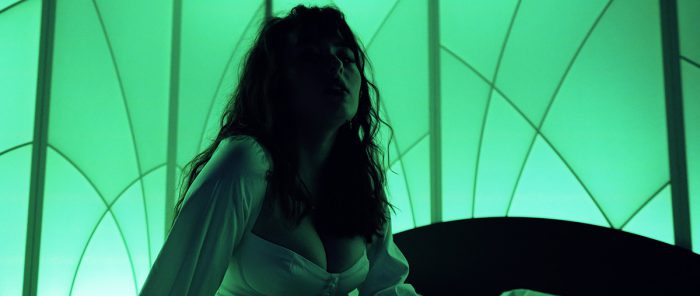
Interviewing Cinematographer Matt De Sousa Part I – His Thoughts on Shooting in Japan, Advice for Directors, and His Passion for Food
The cinematographer reflects on launching his career in Japan. Plus, his hot tip for finding cool locations in Tokyo.
Matt De Sousa is a Tokyo-based cinematographer who has worked with the likes of Etihad Airways and AirBnB, as well as musical artists including Gorillaz collaborator Kilo Kish. Uniquely, he is a self-taught director of photography who got his career started here in Japan, having grown up in Australia and studied Digital Media at university there. Working on native productions as well as international projects visiting Japan, his specialty is music videos, commercials, and digital content production. With a background as a punk musician, he started out shooting footage of his own band’s tours on consumer-grade equipment, exemplifying the democratisation of the filmmaking process resultant of the global proliferation of affordable, quality technology.
We meet at a Turkish restaurant in Akasaka, his pick. He’s just taken delivery of a new editing computer, and is excited to get it set up. We briefly discuss his switch to Windows, the buzz around the new iMac Pro, and the ease of changing platforms as an Adobe Premiere user, before touching on a range of topics including subscription-based software ownership.
Via Spotify and Netflix, we get to the resurgence of analogue technologies, and the benefits of digital versus CD versus vinyl, as a medium for music consumption. He agrees that the longevity of analogue media could play a considerable role in its recent renaissance, indicating the current boom goes beyond the faddish glamour of nostalgia. We briefly discuss the new Kodak Super 8 camera, in relation to film being cheaper to archive than data. He informs me a friend of his has just placed an order despite the price increase, and we wonder whether interest in the device will sustain. For De Sousa, it would be a cool tool for a music video that warranted the look, but not a serious investment. Nevertheless he sees the camera maintaining a longer product lifespan than such “gimmicky” gadgets as the majority of 360-degree cameras that have appeared on the market over past few years.
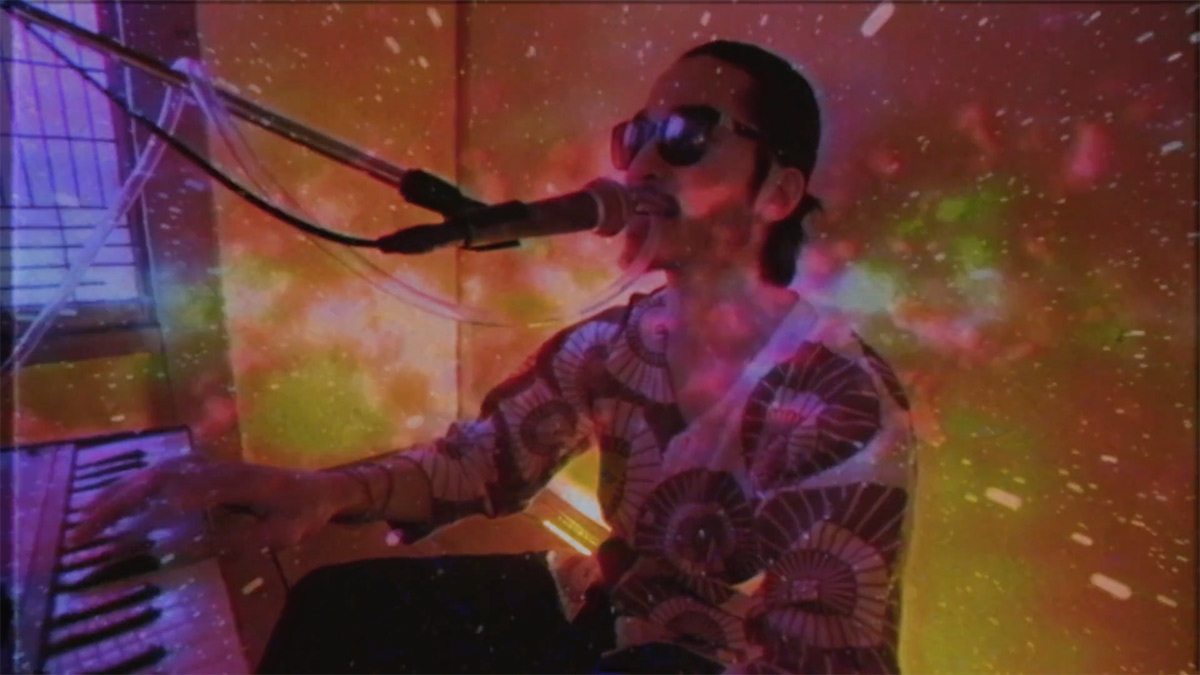
Off his ambivalence towards 360-degree cameras, I ask his thoughts on VR, to which he reacts positively, describing it as a “visceral experience” that could allow physically disabled people to experience sports in the first person. Interestingly, the technology has been explored from this perspective since at least 1994, the main difference today being cost and accessibility to the user. He credits a lot of its current boom to the demand for pornography, particularly in Japan where he reckons VR porn is particularly popular. “It’s funny that for a country so oftentimes frustratingly conservative, they are just leading the world in porn innovation,” he says.
“What I loved about John Wick specifically is that you’ve got these really long takes, this really smooth camera that follows the action.”
Via a wormhole of Japanese technology, and a combined effort to understand the rationale behind the continued prevalence of fax in the country, I attempt to steer us back to his work. “I’ll try not to bullshit too much,” he laughs. We get sidetracked again as we pass over hard-body versus soft-body action heroes (John Wayne versus Bruce Willis versus the various James Bonds), and Hong Kong cinema (as a manifestation of the island’s conflicted colonial past), before landing on John Wick, which I remark is incredibly balletic (marking a clear John Woo influence) but ultimately disappointing in its character choices.
De Sousa’s response to the film comes from a cinematographer’s point of view.
“I love it because it’s very deliberate in its style. I think it’s deliberately unrealistic and not trying to be believable, compared to something like the Bourne series, which I think were trying too hard to be gritty and realistic, almost to the point where it took me out of [the narrative]. I couldn’t suspend my disbelief because they were so over the top. Especially in terms of their cinematography and editing, they were just too much. I know Bourne is famous for its shakey cam but what I loved about John Wick specifically is that you’ve got these really long takes, this really smooth camera that follows the action. You can see everything, it’s really clear, really well executed, and it’s visually really stunning.
“The story is kind of stupid, but it’s kind of fun. When I watch a film, if it’s fun, if it’s stupid — why I love Quentin Tarantino films is because they’re fun.”
I agree with him that fun is nothing to object to in cinema, and express an appreciation for Marvel movies as an interesting record of a specific time in history, documenting a certain paranoia about being American.
“I didn’t study cinematography, that was all self-taught. If you’ve got a pair of eyes and know how to find information online, then you can do it.”
We talk about the effect of 9/11 on the blockbuster, and have a discussion on the politics of Hollywood cinema, discovering a shared interest in film analysis. I ask him whether it’s important for filmmakers to know film theory. He answers:
“I think it’s important to have at least the basic information. Even just understanding the basic terminology and knowing how to break down a film is enough. Probably one of the more important things about studying at uni or college is that you’re given a different perspective. If you’re watching YouTube or reading a website you’re just getting a narrow field of view but I remember being show a pretty wide range of films that I would never have come across myself. That’s probably the most valuable thing I got out of it: just access to a broader range than I would have encountered naturally.
“I didn’t study cinematography — that was all self-taught — but if you’ve got a pair of eyes and you know how to find information online, then you can do it, it’s not this herculean task to learn anything in film at all. It’s all accessible.
“If you can’t go to university then just go on YouTube. And so many of those websites like NoFilmSchool are giving up this free information. A lot of it’s really helpful.
“But I think certainly get the basics.”
De Sousa’s 2017 Showreel
I ask him how he got started as a cinematographer.
”When I was at uni, I was taking an editing class but because I was doing it as an elective they wouldn’t let me rent any equipment. In the editing class, all my classmates, in another class they were doing cinematography and shooting a film, and in the editing class they were cutting it. So I was there in the editing class with no content to cut so I just thought ‘I’ll just go buy a camera.’ I worked at an electronics store at the time, so I just picked one up and shot this quick little short film. A nice, Nikon DSLR it was at the time… I just bought the nicest cheapest thing I could afford.
“If I had studied cinematography, I would have actually known what I was doing and maybe had a bit more of an idea about how to operate a camera.” He describes a process of learning by doing; shooting something then figuring out why it looks the way it does.
“It wasn’t until I came here that I figured out that I wanted to be a DP. Because up till then I was just messing around with a camera, asking, ‘Do I want to do vlogging, do I want to do travel videos?’ It was very Youtube influenced because that was what was coming up at the time.
“I used to play in a band and we toured South East Asia a couple times and I was making videos as we went along. Once the band broke up and I moved here, I had a friend of a friend through the Japanese punk scene [who] asked me if I wanted to do a music video for his band, and I thought, ‘Why not, I’ll do it. I’ve got a camera, I can shoot and cut I together.’ They paid me a little for that… This was a year and a half ago, so quite recent, and then it just snowballed.
“About six months on, I was getting a little bit of freelance work, and then I did a short stint at the Short Shorts Film Festival, after which I decided not to pursue another full-time job, and just keep freelancing. That was just under a year ago.”
This underlines the playing-field-levelling effect of technological advances enabling increasing numbers of new filmmakers from a variety of backgrounds to access equipment and education at a low entry point. New technology becomes a topic we return to many times throughout our two-hour conversation, touching on portability of kit, the future of cinema, and the effect of the internet on contemporary political discussion.
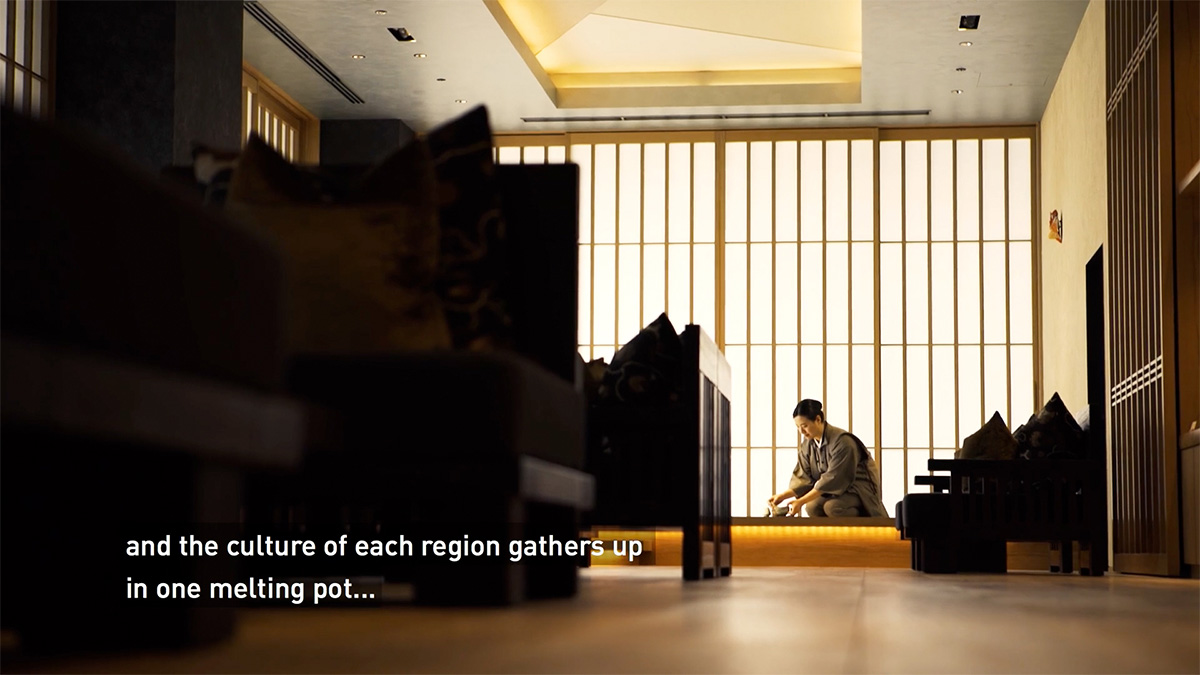
De Sousa credits some of his success in Japan to there being more opportunities for filmmakers here, versus the saturated industry in his homeland Australia where “there are thousands of people every year coming out of uni doing the same thing.” Is he ever hired for his ‘foreign’ perspective? “Yeah, I think that’s why there’s a handful of foreign DPs and videographers who are offering this different perspective. I think there is an advantage to being American, Australian, or British, in that you’ve grown up with a style of film, whether that’s creating it or watching it, that’s influenced your work.
“It’s kind of funny though, because I do get hired a lot by Japanese companies to shoot commercials, but they hire me to shoot the ‘traditional Japanese way,’ and I can’t really fully understand why I’m getting hired on these kinds of things (laughs). I think that a couple directors whom I work with regularly, they know that I can shoot the Japanese way and they just like to hang out with me.”
He defines the ‘Japanese way’ as a style that is very consistent, “regardless of brand or product.” A lot of it is down to the lighting: “It tends to be quite bright and a little bit flat, a little bit soft.”
Does he enjoy working to a very strictly-controlled brief, or prefer more creative control? “I guess it depends on the project. Certainly with anything commercial or client focused, I want it as clear and precise as possible. The more time I have to spend thinking about those other things, the less time I have to figure out how to make it look nice. If it’s a music video, I like getting to be a little more creative with it.”
He’s not one to butt heads, though, and even when directors are less focused in their vision than he would like, he always finds a way to translate their needs into images. “Sometimes all it takes is setting up the camera, setting up the shot and going, ‘Okay what do you think?’ And they go, ‘Ah well, I was thinking a bit more like this.’ So you change it.” Nevertheless he maintains that planning and preparation are crucial: “You don’t waste time having to set it all up and go back and forth if directors know what they want.”
He points out that cinematography treads a “line between creativity and technicality.” De Sousa worked in an electronics store when he was younger, as “the computer/camera sales guy” and still loves playing with new tech. I ask him whether having experience working in retail makes him a better filmmaker. He likes the question:
“I’d say yes, because it gets you used to dealing with a range of people. Your patience is pushed constantly and being able to keep a calm head and keep chill about it — that’s probably the most valuable thing I got out of being in retail.
“And also just being on your feet for god knows how long. I remember leading up to the Christmas period every year you’d have to work these 12- or 14-hour shifts because they do this all-night trading. You’d be on this concrete floor in Vans [sneakers] for hours, so you learn to develop a strong foot and a thick skin.”
Joy Opposites, ‘Now & Then (Live from Red Bull Music Studios Tokyo)’, 2018. Cinematography Matt de Sousa.
Having established the importance of directors planning before they start shooting, he describes his personal preproduction process:
“Because the projects that I tend to take on are the first music video, or maybe second or third [that the artist has ever done], I like to really collaborate on almost every element of the preproduction.
“We choose a song, then figure out whether we want it to be more visual, whether we want it to be more story driven, what locations we want, and then once they’re kind of happy with the basic elements, I put together a basic shot plan and schedule and we go through it.
“Because of the nature of these being really low budget, there’s not that much time dedicated to planning, or location and equipment rentals. It’s all very much run and gun but I really enjoy it. It’s like going back to my roots as a musician in a DIY punk band, when we were doing everything by the seat of our pants.”
His main source of inspiration is Netflix, particularly the cinematography on the Original Series, Mindhunter and Stranger Things. “It’s not that they influence my own style directly, more that it’s just really interesting thinking about those shows. Especially when you think about colour, and you think, ‘What did they do to get that colour? How much is it is practical and how much of it is in post?’”
“Love hotels are awesome locations. It’s cheap and no one’s going to bother you.”
His number one tip for filmmaking in Tokyo is love hotels, something he discovered on a recent music video shoot. “Love hotels are awesome locations. It’s cheap and no one’s going to bother you. If you want that kind of creative location, just look at what love hotels have different visuals and just go in and do it. Costs maybe less than a hundred bucks to get a cool location privately for a few hours.
“As long as you go in there discreetly. I was shooting on a small mirrorless camera, I wasn’t bringing a tripod or anything like that, it was all handheld with a couple small LED panels in a backpack. These days you can fit a whole kit in your backpack, so you can get away with things a lot easier [than in the past].”
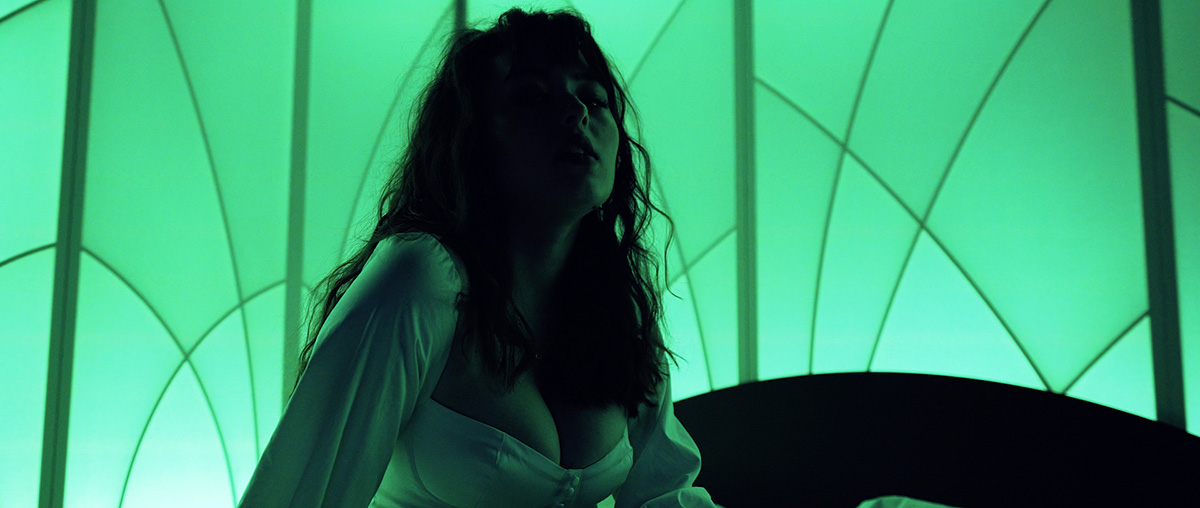
Filmmakers need to be responsible though, he says, pointing out that Logan-Paul-style antics would make it impossible for future productions to shoot in such locations. Has he personally experienced any fallout from the Logan Paul situation? “It’s too soon, I guess. I think the only thing that I saw that will probably have an impact was when he was at Tsukiji. It’s an operating business, so behaviour like that is just going to make it harder for other tourists [and filmmakers] to come and appreciate it quietly and respectfully. So I wouldn’t be surprised if there were more restrictions next month as a result.”
Alongside film and music, De Sousa’s other passion is food. “I think right now all I want to do is have a cooking show. That’s like my dream now, to have a cooking show (laughs).” He explains that he got into cooking as a result of the freelancer lifestyle. “I often have consecutive off days, so I was like, ‘Okay if I’m up to date with all my editing or waiting to hear back on something and have a few days free, I’m at home and my partner gets home at 8, I’ve got six hours to cook — I’m going to buy a slow cooker and just make some pork.’
“With filmmaking, once it became a job it ceased to be a hobby. I still feel pretty blessed for it to be my income but I needed another hobby to replace it, and cooking is creative and delicious.”
He cites the likes of Matty Matheson, Action Bronson, and Bon Appétit as inspirations. Has he ever shot food? “I’ve done a little bit of commercial stuff shooting food. It’s not particularly fun to shoot.
“I did this shoot three or four months ago with one of my regular directors and it was a 12-hour day. It kept going long because the person they hired to actually cook the food wasn’t really prepared in what they were cooking. So we just had to keep taking these breaks where they made mistakes, and it was a whole headache. But that could happen anywhere; it could be someone else who is under prepped. But it took the [magic away], it was like looking behind the curtain.”
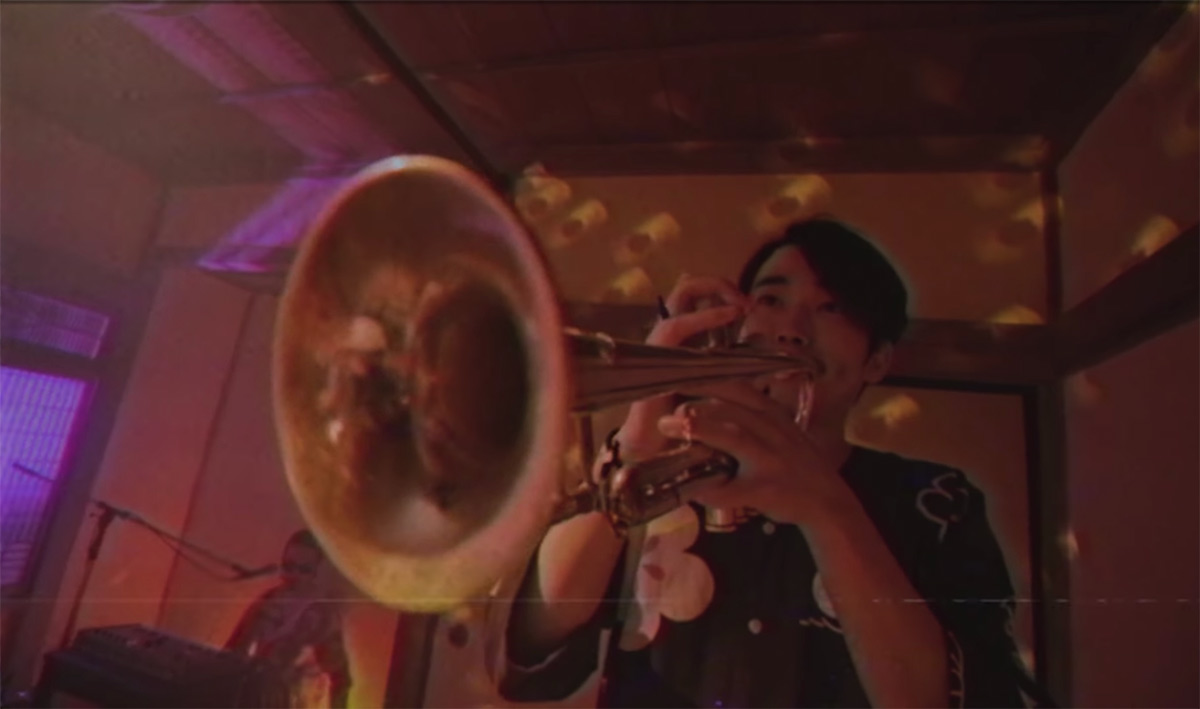
His favourite thing to shoot is still music videos. “No matter what environment, I enjoy shooting that. Growing up as a musician, when I stopped playing music, stopped touring, I still had that same space in my life I couldn’t really fill, and doing music videos is how I could fill that hole in my heart.”
What does he think of Tom Hardy’s rap mixtape, which just surfaced online the morning of this interview? “I saw that come out this morning, I’ve yet to check it. People say it’s good apparently. Is it?
“That dude’s just super interesting. I love him, he’s just brilliant. He can say nothing and I’ll still enjoy him. Did you see Dunkirk? He’s just so entertaining to watch. I guess certain actors don’t really need to do that much but they still really engage you.”
What would his dream project be? “I’ve never really thought about that actually. Besides the food thing. But that’s more a kind of ego thing. That’s more ‘I want to be the one doing the cooking.’ I guess right now the dream project would be shooting a music video or a tour doc for my favourite artist. Doing something with an artist that I actually really love. I think slowly but surely I’m trying to work my way in that direction.”
He thinks we are currently in a golden age for the music video, citing any video from Kendrick Lamar’s most recent album, Damn, as worth a watch. “I think ‘Humble’ is probably the best one.”
De Sousa cites Kendrick Lamar’s ‘Humble’ as one of his favourite music videos.
We talk for at least another half hour about a range of topics, including the future of the theatrical experience: “Personally I do like that ability to just cut off. Especially if you’re watching with a group of people, it’s this visceral experience. I think [the death of the movie theatre] is inevitable but people are going to miss out on something great once it disappears.” He’s not a Star Wars fan, but we briefly discuss The Last Jedi anyway, which funnels us into a deep discussion on nostalgia, collective amnesia, the Mandela Effect, and the Internet. Despite owing a lot of his career success to contemporary technology, he is cautious about the World Wide Web:
“When you see [political] debate online, people are immediately shut down in their own bubbles. They’ll say their opinions and not listen to anybody else’s. The idea of being stubborn is not unique to the Internet but there are these echo chambers that exist now that never really existed before. It scares the shit out of me to be honest, because I think it’s a part of the snowball effect that we’re seeing in terms of populism.”
To close our conversation, what does he think of politics and cinema? “I think that film is a really necessary tool to express yourself politically.
“If you write a political piece about anything, you write a statement on Facebook, or as a journalist, or whatever, it’s very much, ‘This is my opinion, these are the reasons, read it.’ If you have certain beliefs that are the opposite or different to what you’re reading, you’re going to have walls up. But through film you’re just taking a story for what it is. If you don’t upfront know that this is making a political message, it might get through to you a little better.
“Why are people reluctant to actually put themselves in the shoes of others? That’s one of the big things that gets to me in terms of political discourse these days, especially online. I don’t think the average person lacks empathy, I think people are just so fragile and defensive about their own political beliefs that they forget to stop for a second and think, ‘How is this affecting somebody else?’ Just stop and think about what that other person’s going through.”
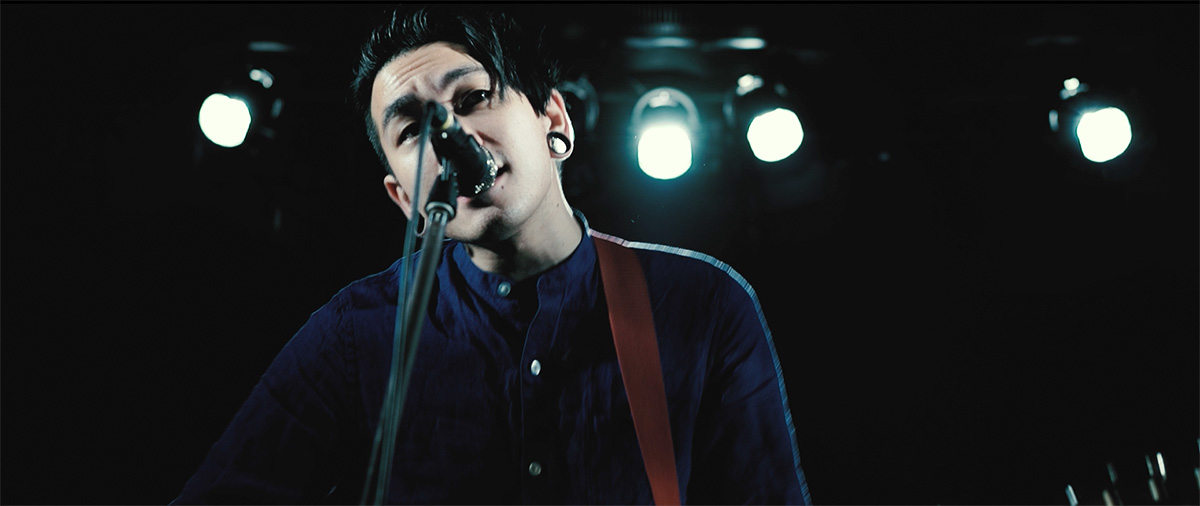
You can find De Sousa’s website here: mattdesousa.com.
You can also follow him on Instagram, Twitter, and Facebook.
PART II
Read Part II of this interview, in which we take a deep dive in to the music video De Sousa shot for Shunske G and the Peas’ hit song, ‘Groove Me.’
